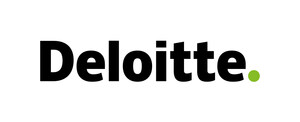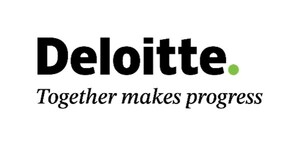
NEW YORK, June 11, 2019 /PRNewswire/ -- While most businesses have intensified their sustainability efforts, many residential consumers' actions have stalled as cost and complexity have slowed commitment to clean-energy solutions, according to Deloitte's "Resources 2019 Study – Balancing climate, cost, and choice," released today.
Although the annual survey shows widespread agreement on the need to address climate change and reduce their carbon footprints, businesses seem much more willing to take action than residential consumers. The survey found that businesses increasingly view sustainability as an opportunity to create value, while residential consumers tend to have a more nuanced view that factors in the cost and convenience of sustainability improvements.
"Consumer complacency may be settling in as costs outweigh climate as a motivator in adopting new technologies and cleaner energy sources," said Marlene Motyka, Deloitte U.S. and global renewable energy leader and principal, Deloitte Transactions and Business Analytics LLP. "On the other hand, most businesses don't perceive a choice between climate and cost. They see green energy choices as a win-win: doing the 'right thing' is good for the environment and the bottom line."
According to the study, about two-thirds of business respondents say their customers are demanding they procure a certain percentage of their electricity from renewable resources, and nearly half of the businesses surveyed are seeking to do so. On the other hand, despite their own hesitations about investing in sustainability, most residential consumers surveyed expect action from the business sector and the government. Households also tend to believe it is the government's responsibility to set the vision and path for U.S. energy strategy, indicating that government policies could help overcome consumer reluctance to adopt sustainable technologies.
Among the key findings:
- Of the 84% of business respondents aware of recent global climate change reports, nearly two-thirds reviewed or changed their energy management strategies in response, with 83% increasing their commitment.
- While energy management remains a top priority, with 9 in 10 reporting goals to reduce electricity consumption, most businesses surveyed are also expanding resource management goals in other areas — with water gaining the most ground with an increase from 59% in 2016 to 75% this year.
- Among residential consumers polled, 67% are very concerned about climate change and their personal carbon footprints, but there was a slight retrenchment in how they felt about the importance of renewable sources of electricity — down to 48% from 53% in 2018.
- Keeping total energy bills affordable rose five points to 63% in 2019, continuing to be the most important energy issue for residential consumers surveyed, while using clean energy sources fell slightly from 2018 to 50%.
Residential consumer behavior on climate in holding pattern: complacency or confusion?
When it comes to translating attitudes into action, the cost of electricity and the perceived cost/time investment required for changing behaviors or adopting new technologies, can be significant barriers to change. Moreover, messaging about new technologies, alternate providers, and other options do not appear to be coming through clearly. Whether it's installing solar panels, enrolling in green energy programs, or purchasing battery storage or electric vehicles, many residential consumers consider those options too expensive or too complicated.
Slowing down on solar
Interest by surveyed residential consumers in installing rooftop solar fell from higher levels seen in 2016–17. Forty-four percent of those polled cite expense as the top barrier to solar installation, followed by uncertainty that panels would work as promised (21%). On the other hand, 39% of respondents would be extremely or very interested in purchasing a share in a community solar project, with interest highest among millennials (49%).
The millennial factor – the countertrend consumer
Surveyed millennials stand out as concerned about climate change and the only generation who consistently rate clean energy and exploring new technology options higher than other age cohorts. According to the study, 53% of millennials rate renewables' role in their electricity supply as extremely or very important, as opposed to 40% in the mature age category (68+). In terms of technology adoption, 18% of respondents use software apps to track energy usage, with 29% of them using it daily. They're also more likely to use home automation than older cohorts.
Home automation gaining momentum despite cyber concerns
Although home automation is at an early stage of deployment (only 2 in 10 of respondents), there are signs adoption is accelerating, with a doubling since 2016 of home device connectivity with smartphones. Fully 61% of active users surveyed are increasingly concerned about privacy and security, while 46% of all residential consumers say that these concerns might prevent them from purchasing smart home technology, and 39% of households link cyber risk with concerns about power outages.
Business see green begetting more green
While desire to cut costs was the top driver of those surveyed for resource management programs, "just 'the right thing to do'" rose 11 points in 2019 to second place, at 39%. In fact, companies who view energy procurement as an opportunity to reduce risk, improve resilience and create new value, rather than as a cost — rose to 88% from 81% in prior years.
More businesses are also tying resource management goals to employee compensation, with 48% polled already incorporating energy objectives into goals, the highest level ever. Of those not working to procure more renewable energy, 65% said they could be motivated to do so by combining renewable energy with battery storage to provide backup generation and/or to improve the economics of the overall system.
Businesses increasingly look to onsite/self generation
By 2021, surveyed companies generating electricity on-site expect to source less power from electricity providers, falling from 40% of power consumed in 2018 to 35% of power consumed in 2021. They expect to replace this electric power with increased supplies from on-site renewable generation, off-site renewables and on-site co-generation. The top three reasons cited for installing onsite generation were diversification of energy supply, cost savings (up sharply) and price certainty.
Interest in electric vehicles (EVs) accelerating
Residential respondents are showing significant interest and intent in EVs, with 26% of respondents saying they are extremely or very interested in purchasing an EV, and 11% planning to replace their current vehicle with an EV. Concerns hindering growth are cost (44%), recharging convenience (29%) and range (26%), but if gasoline prices were higher, interest in purchasing an EV would likely rise for about 44% of residential consumers — and 55% of millennials.
On the business side, the survey shows that while business intentions to purchase EVs for their fleets remain unchanged, more are making the charging stations they provide to employees available for public use. More than half (54%) of respondents said their companies provide EV charging stations for employees, and of these companies, the percentage who make them available to the public ticked up to 6 points in 2018.
"For incumbent electricity providers and new entrants, inertia among residential consumers may, paradoxically, provide a competitive advantage," said Stanley Porter, vice chairman, U.S. energy, resources and industrials leader, Deloitte Consulting LLP. "Generational preferences for greener energy, more choice, and more appetite for technology could open up markets. By understanding and segmenting the customer base and targeting them with clear and compelling messages through the appropriate channels, providers could break through consumer complacency and expand adoption of new services."
Since 2010, Deloitte's annual Resources study has been focused on the thinking of U.S. business and household decision-makers on energy usage, climate change, environmental responsibility, energy management and clean technologies. Based on surveys of 600 businesses across multiple sectors, and 1,500 residential consumers, the nationwide study was designed to provide insights that can help energy companies and businesses make energy-related investment and business decisions.
Connect with us on Twitter at: @Deloitte4Energy and @MarleneMMotyka Or LinkedIn: @StanleyPorter.
About Deloitte
Deloitte provides industry-leading audit, consulting, tax and advisory services to many of the world's most admired brands, including nearly 90% of the Fortune 500 and more than 5,000 private and middle market companies. Our people work across the industry sectors that drive and shape today's marketplace — delivering measurable and lasting results that help reinforce public trust in our capital markets, inspire clients to see challenges as opportunities to transform and thrive, and help lead the way toward a stronger economy and a healthy society. Deloitte is proud to be part of the largest global professional services network serving our clients in the markets that are most important to them. Our network of member firms in more than 150 countries and territories serves four out of five Fortune Global 500® companies. Learn how Deloitte's approximately 286,000 people make an impact that matters at www.deloitte.com.
Deloitte refers to one or more of Deloitte Touche Tohmatsu Limited, a UK private company limited by guarantee ("DTTL"), its network of member firms, and their related entities. DTTL and each of its member firms are legally separate and independent entities. DTTL (also referred to as "Deloitte Global") does not provide services to clients. In the United States, Deloitte refers to one or more of the US member firms of DTTL, their related entities that operate using the "Deloitte" name in the United States and their respective affiliates. Certain services may not be available to attest clients under the rules and regulations of public accounting. Please see www.deloitte.com/about to learn more about our global network of member firms.
SOURCE Deloitte








Share this article